
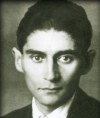 The current political dramas, uncertainty and confusion seem to be extraordinary. But is this really that unusual?
The current political dramas, uncertainty and confusion seem to be extraordinary. But is this really that unusual?
History, if anything, has prepared us for the bizarre and the peculiar. I was therefore prompted to jog my memory and dig out snippets that remain semi-buried in my fallible mind.
Colonel Ilahi Bux, the personal physician of Quaid-e Azam M.A. Jinnah recounted in his little book, With the Quaid-e-Azam During His Last Days, how our executive machinery treated the Quaid when he returned to Karachi after his recuperation in Ziarat. This is a scene from Marquez, the head of state, Governor General and Pakistan’s real, and perhaps the only principled advocate lying in a broken ambulance on a road side and the Madar-i-Millat (mother–ofà ƒÂ¢Ã¢â€šÂ¬Ã¢â‚¬Å“theâà ¢â€šÂ¬Ã¢â‚¬Å“nation), his sister, waving a copy of the newspaper to keep the heat and flies away! And this was no ordinary VIP. The rescue ambulance arrived hours later but the damage had been done.
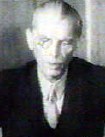
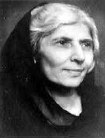
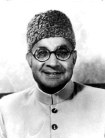
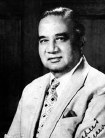
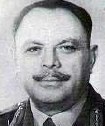
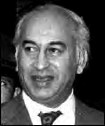
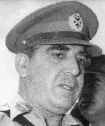
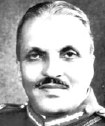
Beyond belief? Yes.
The Quaid passed away in 1948, and his Prime Minister, Liaquat Ali Khan, was shot down by a “lunatic” in 1951. To date, we have no clue as to who hatched the conspiracy, with what motive and why the first Prime Minister was brutally murdered. The assassin was overpowered and killed in the melee that immediately followed the killing. Later the investigating officer’s plane went down with the case files. Thus, we shall never find out the truth; and that is extraordinary. Alas, there is no Oliver Stone here to produce a film on this assassination. Even Kafka, whose vision the Pakistani officialdom typifies, would have been shocked at such developments.Madar-i-Millat Fatima Jinnah’s radio address on Jinnah’s anniversary was censored due to a “technical” glitch. Later, she dared to challenge the Army Chief Ayub Khan in the 1965 Presidential race. Syed Sharifuddin Pirzada, another “extraordinary” legal phenomenon of Pakistan, has held time and again that Fatima Jinnah did not die a natural death but was murdered.ÂÂÂ
He could be wrong, but do we care?
The great Bengali Prime Minister, Husain Shaheed Suharwardy, believed in the future of a united Pakistan. A capable lawyer, politician and a man of letters, he never gave up even after losing his political space. And, what happened in 1963? Suharwardy was found dead in a Beirut hotel in mysterious circumstances. We are not graceful enough to remember him let alone determine the cause of his death. Extraordinary by all means.
Our history makers were not content with such magic-macabre realism. So, “we” decided to initiate army action against our most populous province in 1970. The West Pakistani elites (and this includes everyone and his uncle in the power circles) refused to hand over power to the majority party from the Eastern wing. So while blaming the Hindu teachers in Bengal and ridiculing the treacherous non–martial race, we were relieved to give away the one province that had in real terms struggled for Pakistan. There was a long period of amnesia and silence slightly stirred by the publication of the Hamood ur Rahman Commission Report (that exposed the army action) in 2000 and an apology tendered by General Musharraf in Dhaka later. UNESCO now celebrates the International Mother Language Day on February 21 every year in commemoration of the Bangla language riots of 1952. Ironies don’t shock us anymore.
In the 1970s we lived happily-ever-after under the ostensibly democratic rule of Mr Bhutto that culminated in his physical elimination through the judicial process. The basis of his sentence was evidence that sensible jurisprudence will consider unreliable and defective. The weekly Economist then ran a cover story titled “We Also Hang Our Prime Ministers.” Decades later, a Freudian remark of a Supreme Court judge (who later served as the Chief Justice) in a TV interview in 2004 failed to shock us when he said that this was kinda mistake. Doctrine of necessity stretched beyond the Kafka-esque limits!
The succeeding ruler, another General, proved to be even more peculiar. Having shaken the social and political foundations of the country for eleven years, Zia ul Haq left the world in bizarre circumstances: uniformed with stars, a copy of the Holy Book on his lap, a Jewish US Ambassador by his side, riding in an army plane and yet blown up in the summer heat of 1988. We added it to the layer of our tormented memories.
The film noir played during the decade of the 1990s starred “democratic” regimes playing hide and seek, displaying a wee-bit more maturity than high school governing bodies. Strange was the murder of a sitting Prime Minister’s brother in 1996; and to make matters worse, the PM herself was implicated in this gory act by none other than her self-appointed cronies!
Sordid as this was, the attack of political workers on the Supreme Court in 1997 made the Chief Justice leave his courtroom and hide. More mind-boggling was the split within the Supreme Court then, as judges passed judgments against each other with abandon. Extraordinary that a part of the current judiciary defenders’ brigade includes some of the stalwarts who ordered or ransacked the Supreme Court making Pakistan appear as a fiefdom from medieval history.
Let’s end with the extraordinary events of October 1999 when the Prime Minister and his close confidants apparently prepared a sub-jail for the serving military chief, without an inquiry of course, and actually believed that they could execute this Alice in Wonderland plan of removing and locking him up!
Welcome to Pakistan, Mr. Kafka.
Raza Rumi blogs at Jahane Rumi and writes for The Friday Times, where this was first published.




















































I think Ahsan was questioning the influence of Islam, the religion on which Pakistan was founded, not the Arabs. How does one account for the intense, bloody violence and mayhem in the early years of Islam “the perfect religion”? Everybody has their own defense mechanism where this topic is concerned I guess.
That said, history of all insecure governments esp. the last years of the Romans shows this kind of murderous pushing and shoving for power. It’s the inherent limitation of rule by strongmen. When the strongmen are gone all hell breaks loose. It’s amazing anybody wants the job of leader in such an environment. If the rule of law ever takes hold in Pakistan this will all disappear.
Hardly a comedy of errors but a litany of debacles. What chapter next!
I love Kafka, and there is more to his writing than cruel ironies and outlandishness. I think he would have considered Pakistan pretty normal in view of the whole history of the human race, and some of the events he himself lived through. He knew that what humans consider “normal” is a very precarious thing, and that peace and happiness of any individual or group does not last long, and people themselves are almost unbelieveably fragile.
Especially when they wake up to find themselves transformed into giant insects.
Thanks for the post, I am going to dig out my Complete Kafka today. Its been too long since I’ve read it.
Nice drive down history. BUt all history is like this everywhere we are not too different. We just pity ourselves more than others.
Dear all
many thanks for appreciating the content of the post. I wanted to be as dispassionate and non-cynical as possible about some of the key historical events which is a difficult task! I agree with Asghar Saheb that this is not an “Arab influence” per se but just events of our own making.
I do apologize (in advance) to readers, if I sounded negative.
The top left is author’s portrait and the picture on the top right is that of Franz Kafka.